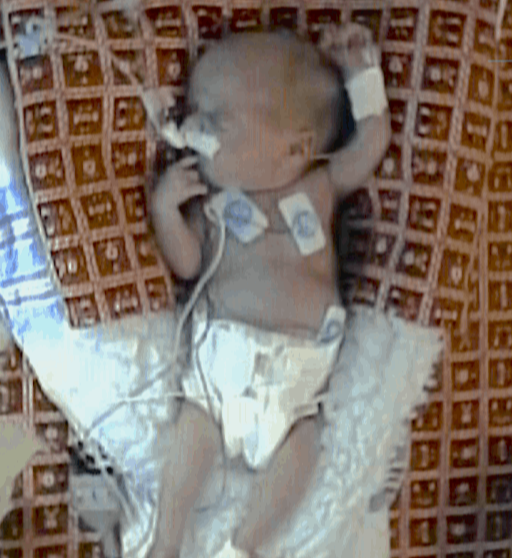
Touching different parts of your body may seem trivial, but for fetuses and newborns self-directed touching may provide a form of self-exporation that promotes normal brain development. Drawing data from archival video collected in collaboration with the University of Iowa Hospitals and Clinics, we are describing the pattern and frequency of self-directed touching in infants born 15-19 weeks premature (i.e., 25-29 weeks of gestation).
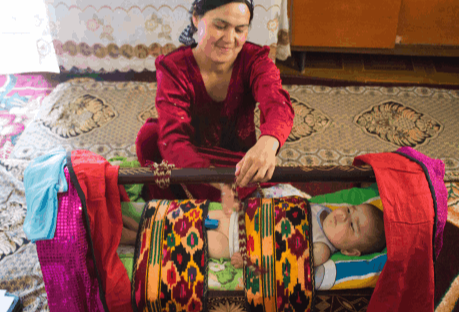
In Tajikistan and other parts of central Asia, mothers traditionally swaddle infants in a gahvora cradle. Infants may remain in the cradle for up to 20 hours a day and up to 2 years of age. What effects does this cultural practice, which severely restricts movement and free play, have on child motor and cognitive development. SRR is serving as a consulting scientist on this project, assisting Dr. Lana Karasik at CUNY in partnership with co-investigators at New York University, the Ministry of Health in Tajikistan, UNICEF, and Save the Children Tajikistan.
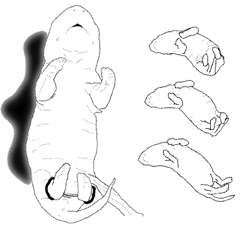
Study of the perinatal rat immediately before and after birth provides a simple system that permits investigation of early neurobehavioral development. Previous research by SRR at the University of Iowa and Idaho State University led to the development of a novel experimental paradigm for studying experience-based changes in motor behavior — in other words, motor learning.
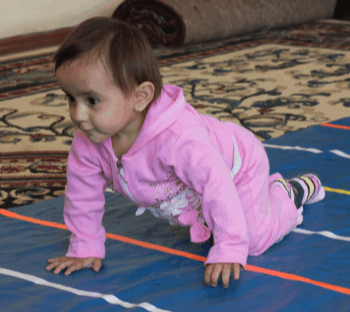
Most infants learn to crawl, and virtually all eventually walk upright. Crawling and walking are important achievements in child development, yet different infants can vary wildly in how and when they reach these milestones. Why to infants crawl and why do they abandon this efficient and stable form of free locomotion to adopt an unsteady upright stance? These are among the questions that SRR is helping to address in collaboration with Dr. Karen Adolph and her Infant Action Lab at NYU.
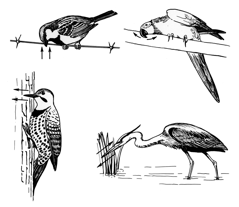
Substrate-directed bill care—including bill wiping and bill rubbing—are common behavior patterns expressed by a wide variety of birds. Not all birds perform this behavior, but opportunistic observations conducted by SRR over many years, coupled with video data now archived on the internet, now provide the basis for an extensive comparative study of this simple action pattern.
Drag and Drop Website Builder